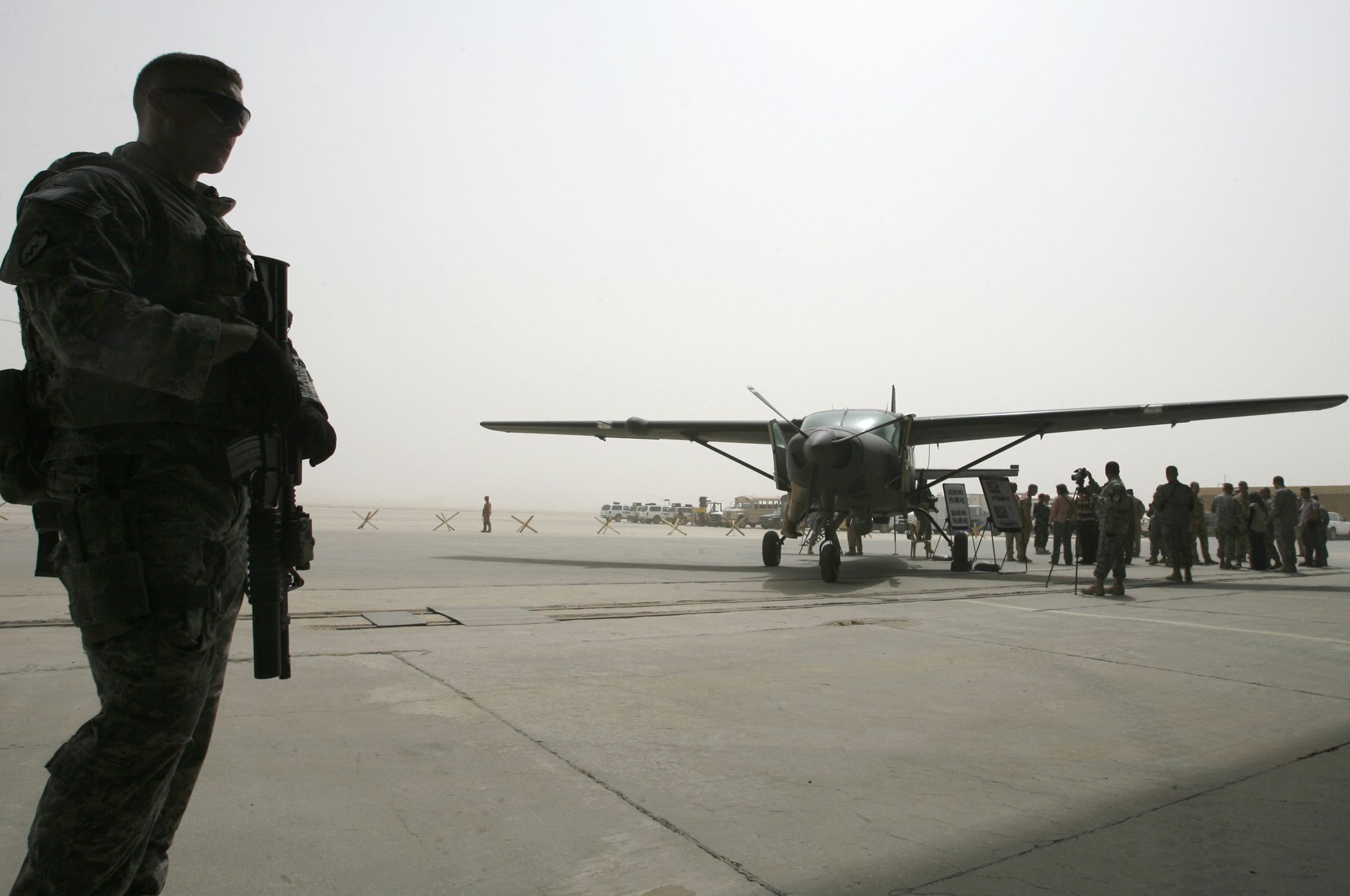
Numerous reports have shed light on the pervasive and secretive use among law enforcement of technology that mimics cell phone towers—often referred to as "stingrays"—to connect to phones and suck up users' data. But a new Wall Street Journal investigation reveals details about a U.S. Marshals Service program, which was developed in partnership with the CIA, that places this technology on airplanes to scoop up data from possibly millions of people.
A previous Journal investigation revealed that the U.S. Marshals Service program, which became fully functional around 2007, uses aircraft equipped with cell tower simulators to locate phones linked to individuals under investigation. A single aircraft's flight can collect tens of thousands of peoples' identifying information and location, people familiar with the program previously told the Journal. The source added that such flights occur on a regular basis.
The new investigation went beyond the broad brush strokes, and found that the CIA and Marshals Service began testing the technology together in 2004. Over the years, the CIA provided the Marshals Service with free cell tower simulators, including new versions as they became available. Each developed and tested device cost hundreds of thousands of dollars.
"[The new information about the CIA] certainly raises troubling questions," said Nathan Wessler, a lawyer for the American Civil Liberties Union. "What legal authority are they using? Do they get warrants? If not, why? What are they doing to protect bystanders' privacy?"
But Wessler admitted the news didn't come as a shock, as reports have shown collusion at every level of government regarding stingray technology.
"We know…that in some states there are agreements between the state police and local agencies to share their technology," he said. "We've seen the Marshals Service loaning stingray devices to local police. We've seen the FBI requiring local police departments to sign an agreement with the FBI whenever they want to buy their own stingray devices."
He also noted that the Marshals Service equipping planes with the technology was anything but revelatory.
"We had seen evidence of other U.S. agencies buying the kits from the Harris Corporation [a major manufacturer of stingray technology] that would let them install these devices on planes, so we certainly knew it was possible," he said.
Instead, what seemed to surprise Wessler was the sheer scope of the program, how systematized it appeared and the frequency with which flights occur.
"It raises the question of whether the CIA was effectively using U.S. citizens as guinea pigs to develop spy gear that was really developed for use overseas in war zones or espionage situations," he said.
Wessler made the comparison of stingray technology, originally developed for military and intelligence purposes, trickling down to local law enforcement agencies, with the ongoing debate about the militarization of police departments. Both situations beg the question: Is gear developed for war zones appropriately deployed in local communities by police officers tasked with keeping people safe?
"Just because our intelligence agencies know how to fly over Afghanistan and assemble a list of all the cellphones below them doesn't mean our domestic law enforcement agencies should be doing the same thing," he said.
But Wessler's overall takeaway was clear: "Every new revelation about this cellphone surveillance program underscores the need for transparency and real effective oversight."
Uncommon Knowledge
Newsweek is committed to challenging conventional wisdom and finding connections in the search for common ground.
Newsweek is committed to challenging conventional wisdom and finding connections in the search for common ground.
About the writer
Lauren is a reporter covering technology, national security and foreign affairs. She has previously worked on award winning teams at ... Read more





